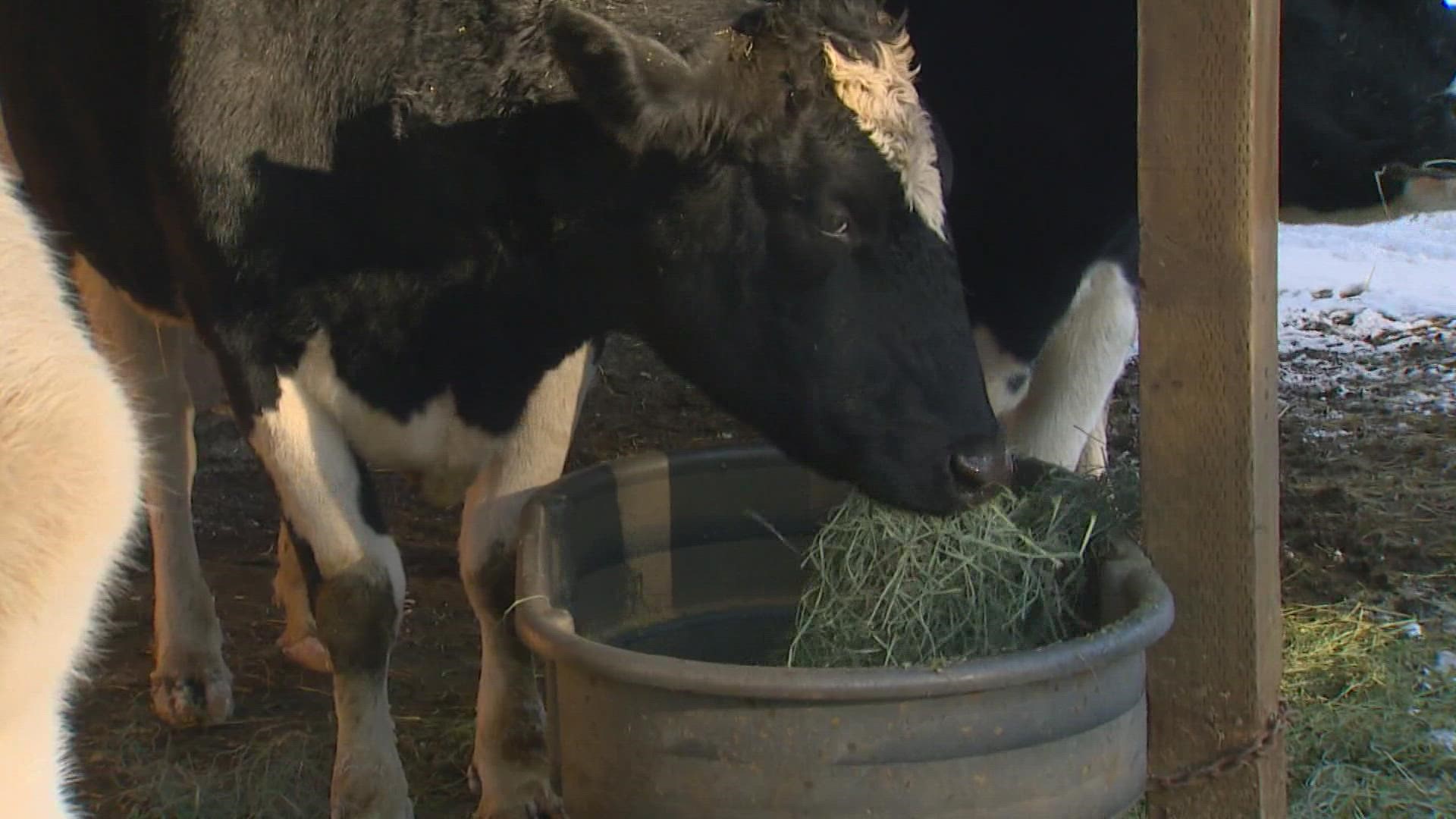SULTAN, Wash — The barn is growing bare at Pasado's Safe Haven Animal Sanctuary.
Word of a looming hay shortage has volunteers concerned about their ability to feed their 200 animals and keep them warm.
As workers feed treats to alpacas and donkeys they worry about having enough of the basics to go around.
There are industry warnings that hay, a staple in the diet of many farm animals, will soon be in short supply.
"We've heard that the cost could double," said Stephanie Perciful, sanctuary director. "We've also heard that it could stay the same but you won't be able to get it."
"That's not something we can have a substitute for. We have to have hay," added Ashley Wisdom, senior animal care manager. "It's vital for them."
The cows at the sanctuary alone gobble up five tons of hay every six weeks.
That's at least $3,000.
Workers have been trying to stock up but it's hard, especially right now because the animals eat more when the weather gets cold.
And they're often in fragile condition.
"Blue," a cow rescued from a dairy farm, likely would have been sold at auction to be raised for meat.
He has been at the sanctuary for 14 years but now has leukemia. He's lost 500 pounds down from his healthy weight of 2,900.
"It's so important to us. Especially when they come here and they've come from terrible conditions and they've been underweight," said Wisdom. "They've not had the nutrients that they need. We're able to provide them with the best feed possible because we're trying to make up for years worth of damage."
The hay isn't only used for food. It's used as bedding, a blanket for pigs and other animals.
When the weather turns cold like it has over the past two weeks they need four times the amount of hay to keep warm.
Droughts and wildfires along the West Coast have decreased hay production and COVID-related trucker shortages are disrupting the supply chain.
"Our biggest concern right now is hypothermia," said Perciful. "It's just like anybody who's outside during the day. You watch the animals just like you would your children. It could definitely be deadly for them."
Perciful hopes the shortage issues get worked out in the coming weeks but for now, she needs to raise about $45,000 to have enough hay to get the nonprofit through the months ahead.
"We just know we have to plan for the worst," said Perciful.
Those interested in donating can visit pasadosafehaven.org for more information.

